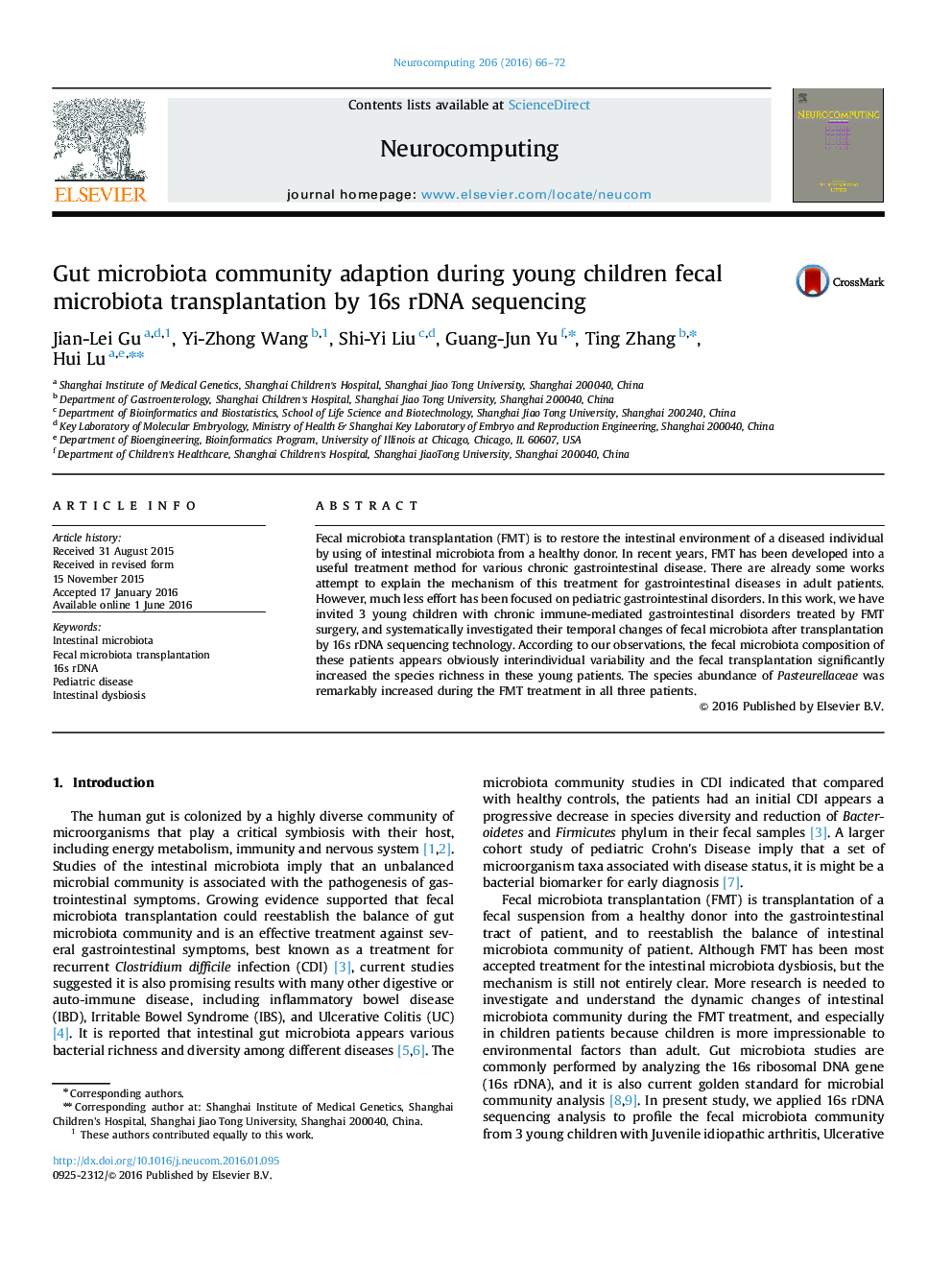| Article ID | Journal | Published Year | Pages | File Type |
|---|---|---|---|---|
| 411376 | Neurocomputing | 2016 | 7 Pages |
Fecal microbiota transplantation (FMT) is to restore the intestinal environment of a diseased individual by using of intestinal microbiota from a healthy donor. In recent years, FMT has been developed into a useful treatment method for various chronic gastrointestinal disease. There are already some works attempt to explain the mechanism of this treatment for gastrointestinal diseases in adult patients. However, much less effort has been focused on pediatric gastrointestinal disorders. In this work, we have invited 3 young children with chronic immune-mediated gastrointestinal disorders treated by FMT surgery, and systematically investigated their temporal changes of fecal microbiota after transplantation by 16s rDNA sequencing technology. According to our observations, the fecal microbiota composition of these patients appears obviously interindividual variability and the fecal transplantation significantly increased the species richness in these young patients. The species abundance of Pasteurellaceae was remarkably increased during the FMT treatment in all three patients.
